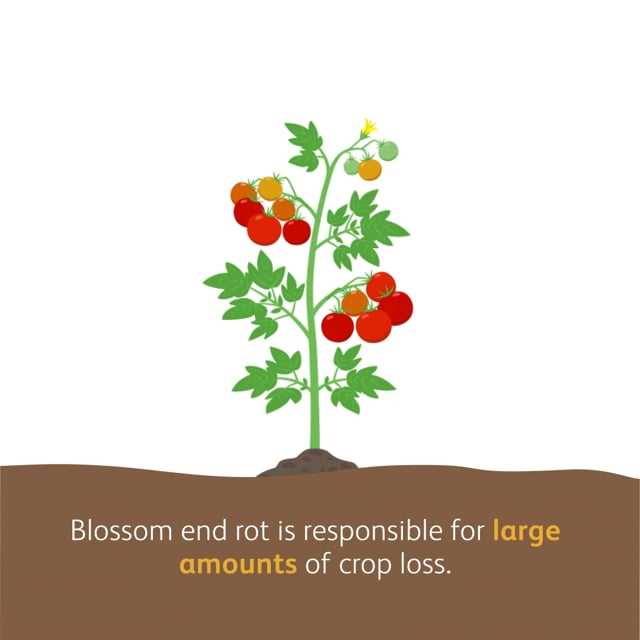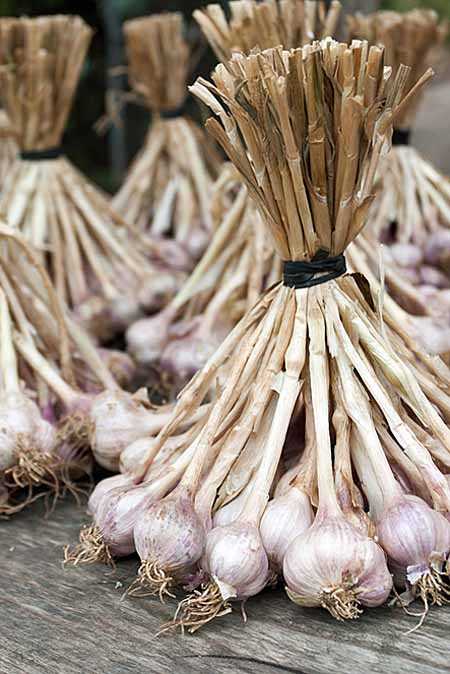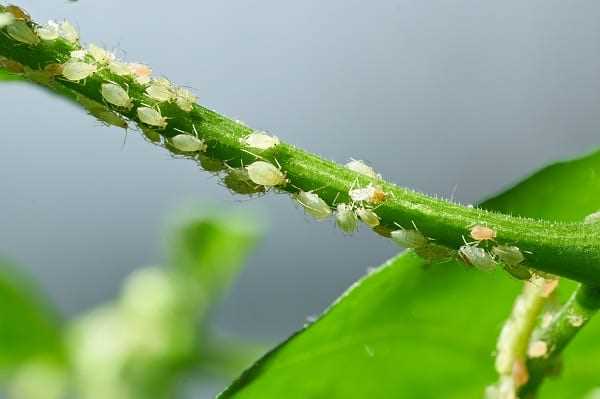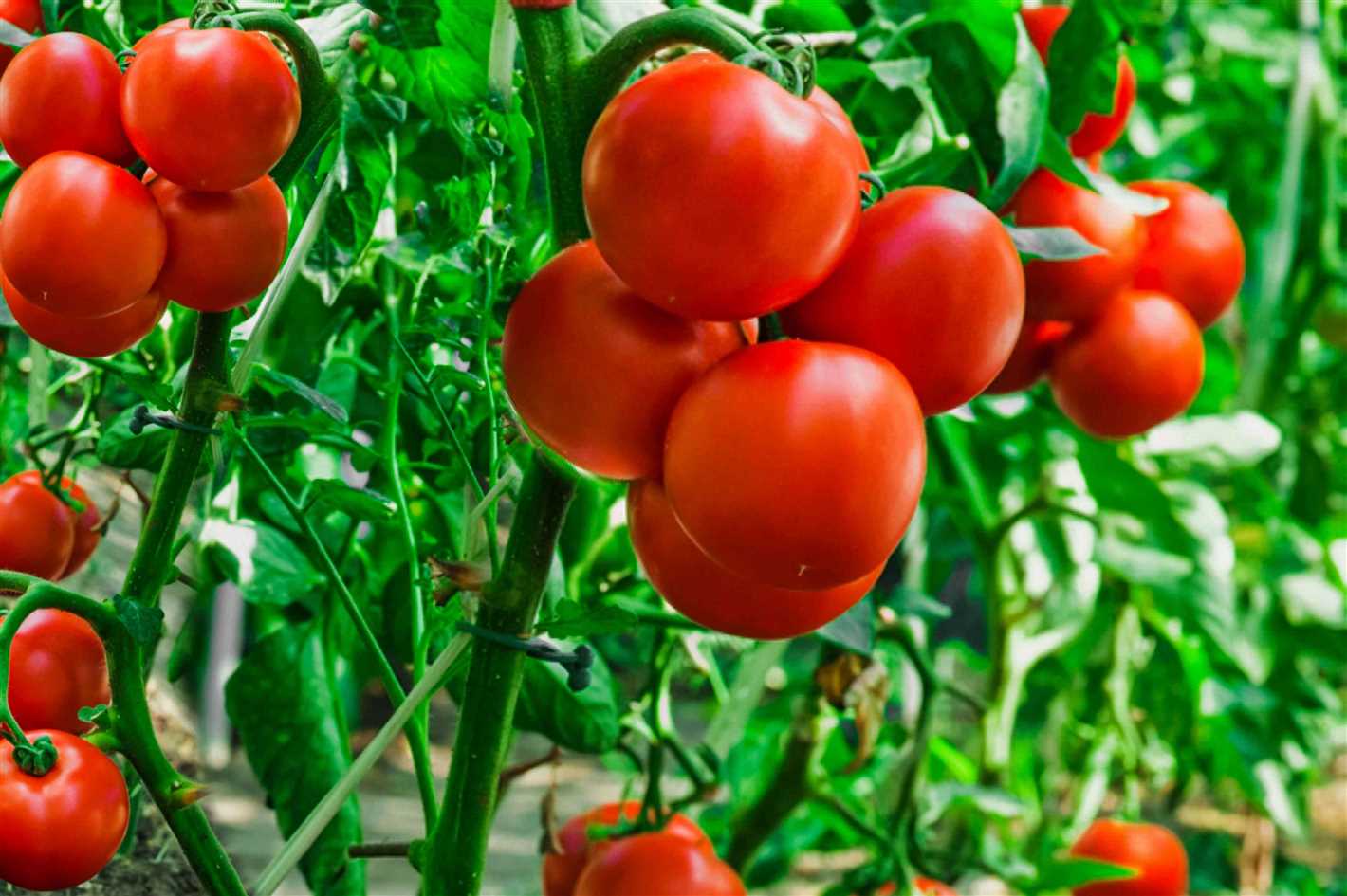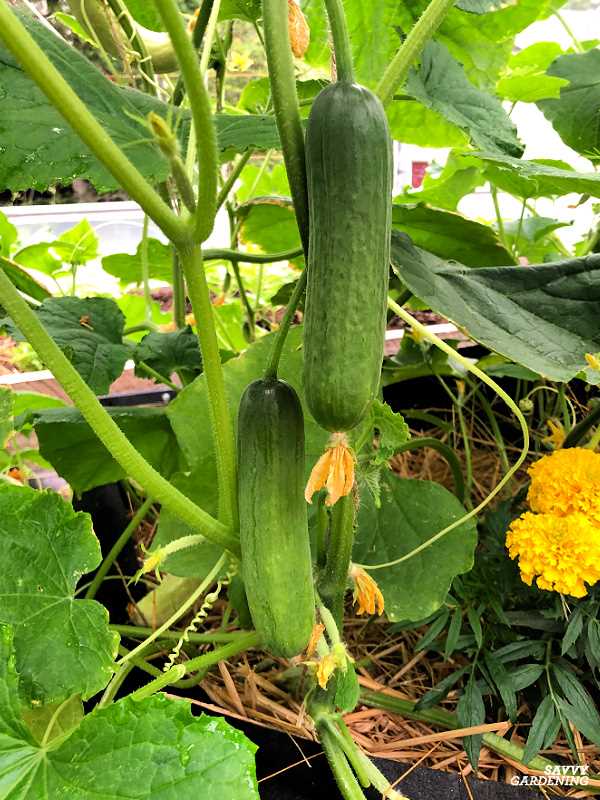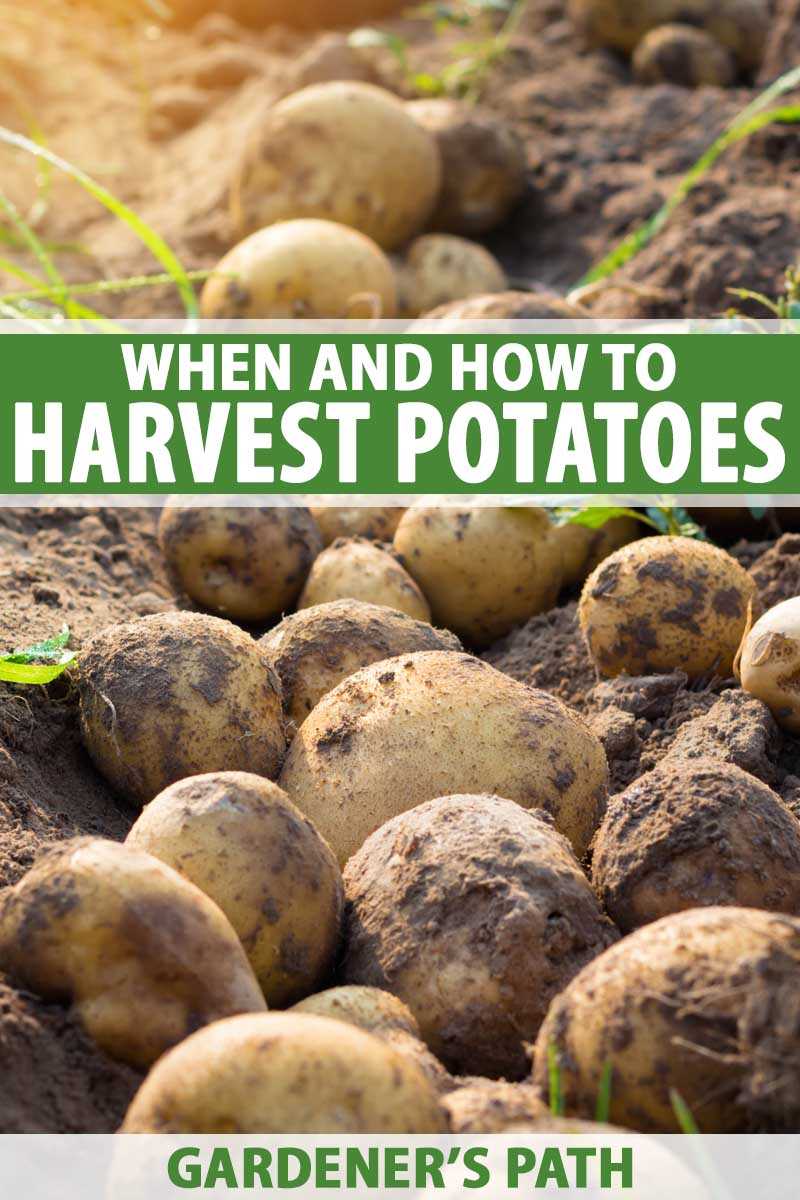- The Benefits of Fertilising Tomatoes with Potassium Humate
- Improving Tomato Yield
- Enhancing Nutrient Uptake
- Promoting Disease Resistance
- Increasing Fruit Quality
- Boosting Root Development
- Supporting Photosynthesis
- Reducing Stress on Plants
- 1. Enhanced Nutrient Uptake
- 2. Improved Water Holding Capacity
- 3. Disease Resistance
- 4. Pest Resistance
- Ensuring Environmental Sustainability
- Introduction
- The Benefits of Potassium Humate
- Conclusion
- “Question-Answer”
- What is potassium humate?
- Why is potassium humate beneficial for tomato plants?
- How does potassium humate increase nutrient uptake?
- What are the benefits of improved soil structure?
- How does potassium humate enhance root development?
- Are there any additional benefits of using potassium humate on tomatoes?
- Is potassium humate safe to use on edible crops like tomatoes?
- “Video” This Magic White Powder Will DOUBLE Your Tomato Harvest!
Tomatoes are one of the most popular and versatile vegetables to grow in a garden. They can be used in a variety of dishes and have a rich, delicious taste. However, growing tomatoes can be challenging, especially if you want to achieve optimal growth and yield. One way to enhance the growth of your tomatoes is by fertilising them with potassium humate.
Potassium humate is a natural substance that is derived from the decomposition of organic materials, such as plants and animals. It is rich in nutrients and minerals that are essential for plant growth, including potassium, nitrogen, phosphorus, and trace elements. When applied to tomato plants, potassium humate can stimulate root development, improve nutrient absorption, and enhance overall plant health.
One of the main benefits of fertilising tomatoes with potassium humate is an increase in yield. The nutrients present in potassium humate can promote the development of healthy fruit and increase the number of tomatoes produced per plant. Additionally, potassium humate can improve the quality of the tomatoes by enhancing their flavor, color, and texture.
In addition to improving yield and quality, potassium humate can also help tomato plants resist diseases and pests.
The nutrients in potassium humate can strengthen the plant’s immune system and improve its ability to fight off infections and attacks by pests. This can lead to healthier and more vigorous plants that are less susceptible to common tomato diseases, such as blight and wilt.
The Benefits of Fertilising Tomatoes with Potassium Humate

Growing healthy and bountiful tomatoes requires the right balance of nutrients in the soil. One important nutrient that tomatoes benefit from is potassium humate. Potassium humate is a highly effective organic fertilizer that can greatly improve tomato plant growth and yield. Here are some of the key benefits of fertilising tomatoes with potassium humate:
- Improved root development: Potassium humate promotes the growth of strong and healthy roots in tomato plants. This allows the plants to better absorb water and nutrients from the soil, leading to overall stronger and more productive plants.
- Increased fruit quality: Tomatoes fertilized with potassium humate often produce higher quality fruits. The added potassium helps to enhance the flavor and color of the tomatoes, making them more appealing to consumers.
- Enhanced nutrient uptake: Potassium humate helps to improve nutrient uptake in tomato plants. It acts as a chelating agent, allowing the plant to better absorb and utilize essential nutrients such as nitrogen, phosphorus, and potassium. This leads to improved growth and health of the plants.
- Increased resistance to diseases and pests: Potassium humate strengthens the immune system of tomato plants, making them more resistant to diseases and pests. This can help prevent common issues such as fungal infections, root rot, and insect infestations, leading to healthier plants and higher yields.
- Environmental benefits: Potassium humate is an organic fertilizer, which means it is environmentally friendly. It does not pose any harm to the soil, water, or surrounding ecosystem. Using potassium humate for tomato cultivation helps to promote sustainable and eco-friendly farming practices.
Overall, fertilising tomatoes with potassium humate provides numerous benefits, including improved root development, increased fruit quality, enhanced nutrient uptake, increased resistance to diseases and pests, and environmental sustainability. Consider incorporating potassium humate into your tomato fertilization routine to maximize the health and productivity of your plants.
Improving Tomato Yield
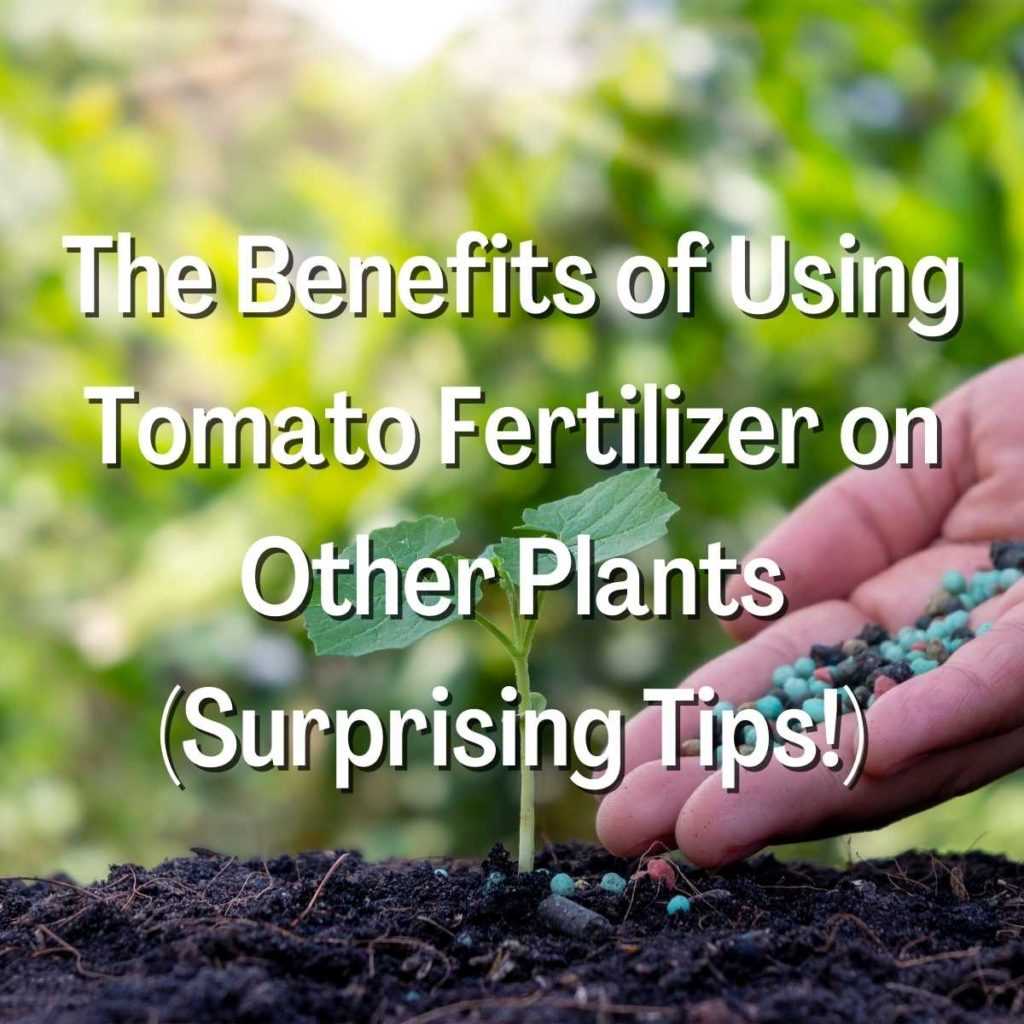
- Choose the Right Tomato Variety
- Provide Proper Nutrition
- Use High-Quality Potassium Humate Fertilizer
- Proper Watering
- Monitor Pests and Diseases
- Support and Prune Tomato Plants
- Monitor and Adjust pH Levels
- Provide Adequate Sunlight
When aiming to improve tomato yield, it is important to select the right tomato variety. Some tomato varieties are known for producing higher yields, while others may be more suitable for specific growing conditions. Research and choose a variety that is recommended for achieving high yields.
Tomatoes require a balanced supply of nutrients for optimal growth and fruit production. Along with the essential macronutrients nitrogen, phosphorus, and potassium (NPK), tomatoes also benefit from micronutrients such as calcium, magnesium, and iron. Ensuring that your tomato plants receive the necessary nutrients will help improve their overall health and yield.
Fertilising tomatoes with potassium humate can significantly improve their yield. Potassium humate is a natural organic compound that promotes better root development, nutrient uptake, and fruit setting in tomatoes. It enhances the plant’s ability to absorb and utilize nutrients, resulting in improved plant health and higher fruit yields.
Water is essential for the growth and development of tomato plants. Consistent and proper watering is crucial to maintain healthy plants and achieve higher yields. Tomatoes require regular and deep watering, especially during dry periods. Avoid overwatering, as it can lead to diseases and root rot.
Pests and diseases can significantly impact tomato yield. Regularly inspect your plants for any signs of pest infestation or disease symptoms. Take preventive measures, such as using organic pest control methods and maintaining proper plant hygiene, to protect your tomatoes from pests and diseases and ensure higher yields.
Providing support and pruning tomato plants can help improve air circulation, reduce disease risks, and enhance fruit production. Use stakes, cages, or trellises to support tomato plants and prevent them from sprawling on the ground. Prune the plants by removing suckers and excessive foliage to redirect their energy towards fruit production.
Tomatoes prefer slightly acidic soil with a pH level of around 6.0 to 6.8. Regularly test your soil’s pH levels and adjust them if necessary. Acidic soil can be amended with lime, while alkaline soil can be treated with sulfur or peat moss.
Tomatoes require full sunlight to thrive. Ensure that your tomato plants receive at least 6-8 hours of direct sunlight each day. Insufficient sunlight can affect their growth and yield potential.
Enhancing Nutrient Uptake
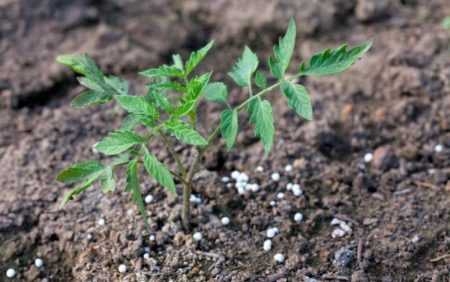
Potassium humate helps to enhance the uptake of nutrients in tomato plants. This is because it acts as a chelating agent, which means it binds to nutrients in the soil and makes them more readily available for the plants to absorb.
When applied to tomato plants, potassium humate helps to increase the uptake of essential nutrients such as nitrogen, phosphorus, and potassium. These nutrients are vital for the growth and development of tomato plants, and by improving their uptake, potassium humate promotes healthier and more robust plants.
Additionally, potassium humate enhances the efficiency of nutrient absorption by improving the root system of tomato plants. It helps to increase the root mass and length, allowing the plant to explore a larger area of the soil and absorb more nutrients. This leads to improved nutrient uptake and overall plant growth.
Furthermore, potassium humate also improves the water-holding capacity of the soil. This means that the soil can retain more moisture, providing a continuous supply of water to the tomato plants. As water is necessary for the uptake of nutrients, the enhanced water-holding capacity of the soil contributes to improved nutrient uptake.
In conclusion, by acting as a chelating agent and improving the root system and water-holding capacity of the soil, potassium humate enhances nutrient uptake in tomato plants. This results in healthier and more productive plants with improved growth and development.
Promoting Disease Resistance
One of the significant advantages of fertilising tomatoes with potassium humate is the promotion of disease resistance. Potassium humate acts as a natural defence mechanism for tomato plants, helping them fight against various diseases and pathogens. Here are some ways in which potassium humate benefits the disease resistance of tomatoes:
- Improved plant immune system: Potassium humate enhances the plant’s immune system, making it more effective in warding off diseases. It stimulates the production of antimicrobial substances, such as phytoalexins, that inhibit the growth of pathogens.
- Increased resistance to fungal infections: Fungal diseases, such as early blight and powdery mildew, can severely damage tomato plants. Potassium humate strengthens the plant’s cell walls, making it harder for fungi to penetrate and infect the plant.
- Enhanced tolerance to stress: Stressful environmental conditions can weaken tomato plants and make them more susceptible to diseases. Potassium humate improves the plant’s ability to withstand stressors like drought, extreme temperatures, and nutrient imbalances, reducing the chances of disease development.
In addition to these direct benefits, the use of potassium humate in tomato fertilisation can also indirectly promote disease resistance. When plants receive balanced nutrition and are healthy overall, they are more capable of resisting diseases. Potassium humate helps in nutrient uptake, ensuring that the plants have optimal levels of essential minerals like nitrogen, phosphorus, and potassium.
By promoting disease resistance, potassium humate offers long-term benefits to tomato growers, reducing the need for chemical fungicides and other disease control measures. It enhances the sustainability of tomato cultivation and contributes to healthier, higher-yielding crops.
Increasing Fruit Quality
One of the major benefits of fertilising tomatoes with potassium humate is the significant increase in fruit quality. Potassium humate improves the overall taste, texture, and color of the tomatoes, making them more desirable to consumers.
Potassium humate has been found to enhance the sweetness of tomatoes by increasing sugar content. This results in a more flavorful and enjoyable eating experience. Additionally, it improves the texture of the fruit, making it juicier and more tender.
Furthermore, potassium humate helps to enhance the color of tomatoes, resulting in a brighter and more vibrant appearance. This is particularly important for tomato farmers who rely on the visual appeal of their produce to attract customers.
Another significant aspect of increased fruit quality is the impact it has on the shelf life of tomatoes. Potassium humate helps to reduce the rate of post-harvest decay, allowing tomatoes to stay fresh for longer periods. This not only benefits the farmers in terms of reduced wastage but also ensures that consumers can enjoy tomatoes with optimal quality and taste.
In conclusion, the application of potassium humate as a fertilizer for tomatoes leads to a substantial improvement in fruit quality. The enhanced taste, texture, color, and shelf life make the tomatoes more marketable and appealing to consumers.
Boosting Root Development
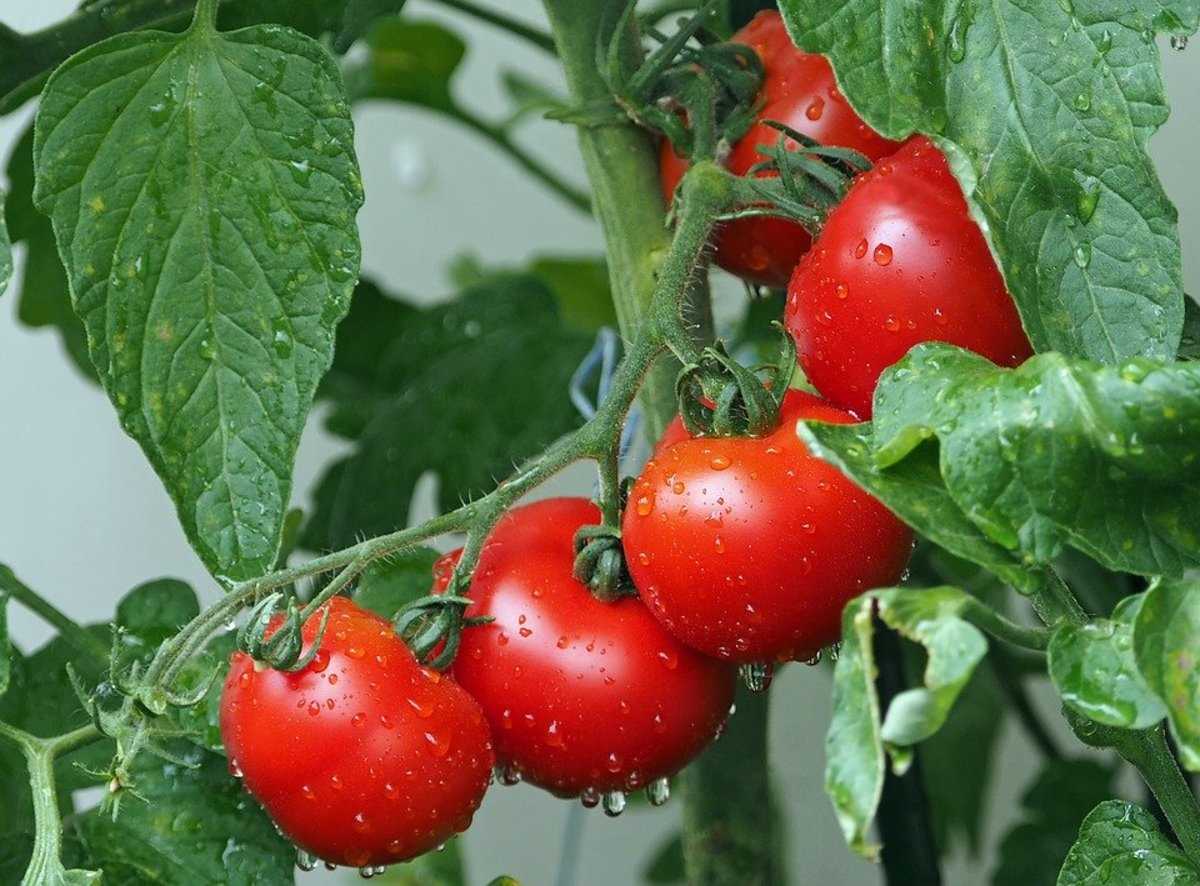
Potassium humate has been found to significantly improve root development in tomato plants. This is because potassium humate contains essential nutrients and growth-promoting substances that stimulate root growth and enhance root architecture.
Increased root length and density:
- Studies have shown that tomato plants treated with potassium humate exhibit longer and denser root systems compared to untreated plants.
- The increased length and density of roots allow plants to absorb water and nutrients more efficiently, resulting in healthier and more vigorous plants.
Enhanced nutrient uptake:
- Potassium humate acts as a natural chelator, which means it binds to essential nutrients and prevents them from becoming bound and unavailable to plants.
- By improving the availability of essential nutrients, potassium humate enhances nutrient uptake by the roots, ensuring that plants receive an adequate supply of nutrients for growth and development.
Promotion of beneficial microbial activity:
- Potassium humate stimulates the growth and activity of beneficial soil microbes, such as mycorrhizal fungi.
- These microbes form symbiotic associations with plant roots, helping with nutrient uptake and overall plant health.
- The presence of potassium humate in the soil promotes a favorable environment for these beneficial microbes, further enhancing root development and nutrient absorption.
Improved tolerance to stress:
- Tomato plants treated with potassium humate have been shown to exhibit improved tolerance to various environmental stresses, such as drought, salinity, and high temperatures.
- Enhanced root development allows plants to establish a stronger and more resilient root system, enabling them to withstand and recover from stressful conditions more effectively.
In conclusion, the application of potassium humate can significantly boost the development of tomato roots. This leads to increased nutrient uptake, improved tolerance to stress, and overall healthier and more productive tomato plants.
Supporting Photosynthesis
To understand the special benefits of fertilising tomatoes with potassium humate, it is important to first understand the role of photosynthesis in plant growth. Photosynthesis is the process by which plants convert sunlight, carbon dioxide, and water into glucose and oxygen. This complex process relies on several factors, including the availability of essential nutrients like potassium.
Potassium is a macronutrient that plays a crucial role in photosynthesis. It is involved in the opening and closing of stomata, the microscopic pores on a plant’s leaves. Stomata control the exchange of gases, allowing carbon dioxide to enter the plant and oxygen to exit. By regulating stomatal opening, potassium helps maintain an optimal balance of gases for photosynthesis.
In addition to its role in stomatal regulation, potassium also acts as an enzyme activator in several key steps of photosynthesis. It is necessary for the activation of enzymes involved in the Calvin cycle, the part of photosynthesis where carbon dioxide is converted into glucose.
When tomatoes are fertilised with potassium humate, they receive a readily available source of potassium. This allows the plants to efficiently carry out photosynthesis, resulting in improved growth, increased yields, and enhanced fruit quality. Potassium humate also has the ability to enhance the plant’s immune system, making it more resistant to disease and stress.
Overall, supporting photosynthesis through the application of potassium humate is a crucial step in maximising the potential of tomato plants. By ensuring an adequate supply of potassium, growers can promote healthy growth and achieve exceptional crop results.
Reducing Stress on Plants
Tomato plants can experience stress due to various factors such as extreme temperatures, drought, diseases, or pest attacks. This stress hampers the normal growth and development of the plants, leading to lower yields and poor quality fruits. However, by using potassium humate as a fertilizer, you can effectively reduce stress on tomato plants and promote their overall health and productivity.
1. Enhanced Nutrient Uptake
Potassium humate improves the availability and uptake of essential nutrients by tomato plants. It acts as a chelating agent, binding nutrients like nitrogen, phosphorus, and potassium, and making them easily absorbable by the plants. This ensures that the plants receive adequate nutrition, even during stressful conditions, helping them to thrive and withstand adversity.
2. Improved Water Holding Capacity

During periods of drought or water scarcity, tomato plants struggle to access and retain sufficient water. Potassium humate can help alleviate this problem by enhancing the water holding capacity of the soil. It acts as a humectant, attracting and retaining moisture in the root zone, making it available to the plants for a longer duration. This improves the water availability for the tomato plants, reducing water stress and promoting their growth and productivity.
3. Disease Resistance
Stress weakens plants’ immune system, making them more susceptible to diseases and infections. Potassium humate can help boost the plants’ immune response, making them more resistant to diseases. It stimulates the production of defense compounds, strengthens the plant cell walls, and activates the plants’ natural defense mechanisms. This helps the tomato plants fight off diseases and stay healthier, resulting in higher yields and better-quality fruits.
4. Pest Resistance
Insects and pests can also cause stress to tomato plants, leading to reduced yields and damaged fruits. Potassium humate can help deter pests and insects from attacking the plants. It acts as a natural repellent by altering the plants’ smell and taste, making them less attractive to pests. Additionally, it improves the plants’ overall health and vigor, making them more resilient to pest attacks. This reduces stress on the tomato plants and minimizes the damage caused by pests.
By using potassium humate as a fertilizer for tomato plants, you can effectively reduce stress and promote their health and productivity. Its ability to enhance nutrient uptake, improve water holding capacity, boost disease resistance, and deter pests makes it an invaluable tool for tomato growers. Incorporating potassium humate into your tomato fertilization routine can result in higher yields, better-quality fruits, and overall healthier plants.
Ensuring Environmental Sustainability
Introduction
As the use of chemical fertilizers and pesticides continues to raise concerns about their impact on the environment, it is important to explore sustainable alternatives for agriculture. Environmental sustainability focuses on the long-term health and stability of ecosystems, ensuring their ability to maintain a balanced state.
The Benefits of Potassium Humate
Potassium humate, a substance derived from organic matter, offers a sustainable solution for the fertilization of tomatoes. When used in the cultivation of tomatoes, potassium humate provides several environmental benefits:
- Reduced chemical pollution: Unlike chemical fertilizers, potassium humate does not contain harmful synthetic substances that can leach into the soil and water sources. This helps prevent pollution and protects the health of surrounding ecosystems.
- Increase in soil fertility: Potassium humate enhances the soil’s ability to retain nutrients and water, promoting healthier plant growth. By improving soil fertility, it reduces the need for excessive fertilization and minimizes the runoff of excess nutrients.
- Enhanced microbial activity: Potassium humate supports the growth and activity of beneficial microorganisms in the soil. These microorganisms contribute to the breakdown of organic matter and the release of nutrients, creating a natural and sustainable nutrient cycle.
- Improved disease resistance: The use of potassium humate can help strengthen the immune system of tomato plants, making them more resistant to diseases and pests. This reduces the reliance on chemical pesticides and promotes a healthier and more balanced ecosystem.
Conclusion
By adopting sustainable practices such as the use of potassium humate in tomato cultivation, farmers can contribute to environmental sustainability. This organic and natural approach helps protect the environment, ensures the long-term viability of ecosystems, and supports the production of healthy and high-quality tomatoes.
“Question-Answer”
What is potassium humate?
Potassium humate is a natural organic compound that is derived from Leonardite, a type of sedimentary rock.
Why is potassium humate beneficial for tomato plants?
Potassium humate can improve the overall health and growth of tomato plants by increasing nutrient uptake, improving soil structure, and enhancing root development.
How does potassium humate increase nutrient uptake?
Potassium humate contains humic acids, which can chelate or bind with nutrients in the soil, making them more available for absorption by the plant roots.
What are the benefits of improved soil structure?
Improved soil structure allows for better water retention, aeration, and nutrient movement, which can promote healthier and more vigorous tomato growth.
How does potassium humate enhance root development?
Potassium humate stimulates root growth by increasing root hair development and branching, leading to a larger and more efficient root system for nutrient and water absorption.
Are there any additional benefits of using potassium humate on tomatoes?
Yes, potassium humate can also enhance the plant’s resistance to stress, such as drought, temperature extremes, and disease, resulting in improved overall plant health and productivity.
Is potassium humate safe to use on edible crops like tomatoes?
Yes, potassium humate is a natural and safe product that is approved for use on edible crops. It does not leave any harmful residues and is environmentally friendly.

